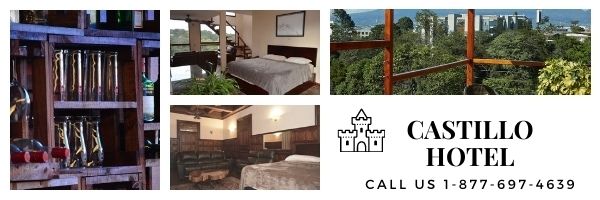This article appeared in this mornings
AM Costarica.
I have to admit that living here and being white I was oblivious to the manifestations of discrimination that occur in everyday commerce that the article pointed out.
Quote:
Skin color determines treatment
Xenophobia has very deep roots in Costa Rica
By Jay Brodell
editor of A.M. Costa Rica
Deep within the consciousness of many Costa Ricans is a fear of foreigners and those who are different.
These fears engender prejudice and manifest themselves as suspicion and bad treatment of persons with darker complexions.
The influx of Nicaraguans has reinforced this xenophobia and prejudices as Costa Ricans level blame on the newcomers for all sorts of social ills.
Prejudice is one reason the Caribbean coast of Costa Rica suffers from a lack of investment and governmental care. There is no secret that dark-skinned residents of the Provincia de Limón could not even travel freely into the Central Valley until the second half of the last century.
International visitors of any skin color do not face most of these problems because they are perceived to be wealthy and travel mainly in tourism circles.
A growing social movement brought this issue home to Casa Presidencial Tuesday. An umbrella group called the Confederación Solidaridad was joined by representatives of the Comisión Costarricense de Derechos Humanos. At issue are housing and the new immigration law that Nicaraguans see as restrictive.
Perhaps as many as 1 million Nicaraguans and other non-Costa Rican Latins live here. If they have darker skin they are lumped into the same category. And skin color and an accent denote a certain socio-economic group in the minds of the generally white-skinned Costa Ricans in the Central Valley.
The public treatment rubs off as Panamanians, members of local Indian tribes and others refer to themselves as "black" even though they may have a skin color similar to a Northern European who spent a few days in the Costa Rican sun.
When North American visitors enter the downtown Gran Hotel Costa Rica, for example, they may not be aware that native Costa Ricans with darker skin are refused access by the nearby guard.
In a department store like Universal a dark-skinned shopper kicks off a major operation among security personnel. Three to four radio-equipped guards surround the shopper during the entire visit.
Costa Ricans in public jobs, like banks and ministries, are always officious, but even more so when they think they can behave high-handedly with a customer from a lower social group.
Even on police reports and bulletins the suspects, if not Costa Rican, are referred to by their perceived nationality.
Crimes, then, are the handiwork of Nicaraguans, Panamanians and residents from Limón, a euphemism for black.
When gunmen raided the Banco Nacional branch in Santa Elena de Monteverde in March 2005, one, a Nicaraguan, killed a police officer and held hostages over night. This inflamed hatred of all Nicaraguans.
When a rottweiler caught a burglar at a junk yard in Lima de Cartago Nov. 10, police stood by for at least 30 minutes to watch the dog inflict wound after wound on the culprit, an Illegal Nicaraguan who later died.
The death-by-guard-dog brought to the surface the latent Costa Rican dislike of Nicaraguans. Cell phones, the Internet and personal conversations were filled with macabre jokes glorifying the dog and denigrating Nicaraguans.
The dog attack became an international incident as the government of Nicaragua sent a prosecutor to investigate. Nicaraguan officials also were here 14 months ago to investigate complaints when Fuerza Pública officers sealed off the La Carpio urban slum where many live substandard lives. Police conducted checks of identity and immigration status.
But is is not the official actions that pierce the souls of many darker residents here. What hurts is the day-to-day slights, the verbal abuse and the preconceptions that darker skinned individuals have to be household maids or agricultural workers instead of professors, bankers or executives.
The discrimination extends to employment. Job seekers here still provide and employers seek photographs to accompany resumes.
Although there are laws that promise equal treatment, the enforcement is haphazard. Plus employment is laced with other variables beside skin color like gender bias and good old boyism.
Meanwhile, some Nicaraguans will continue to step into the gutter when Costa Ricans pass by.
_________________

Pura Vida

Only Irish coffee provides in a single glass all four
essential food groups:
alcohol, caffeine, sugar and fat.
Alex Levine









 ___________________________________
___________________________________

